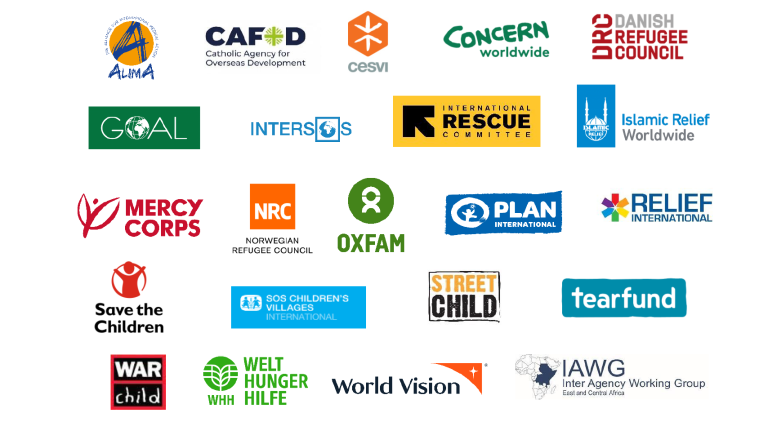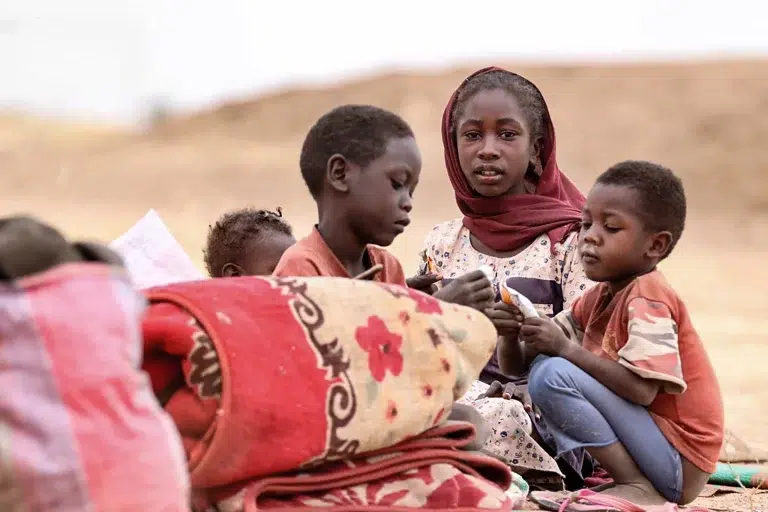Air polluted by urban smog, contaminated waste, chemical products, endocrine system disruptors, heat waves, extreme weather events… All these phenomena are increasing the rate of the planet’s degradation and leaving their mark on the health of populations. More and more, our health care workers and those of our partners (Ministries of Health, local NGOs) are seeing patients suffering from “environmental pathologies,” including some cancers, chronic respiratory diseases, such as asthma, diarrheal diseases, malaria, etc. If the environment and health are strongly linked, so are environmental and humanitarian crises.
Scientists are repeatedly raising alarms. As recently as 2019, 11,000 researchers from around the world signed the third “warning to humanity” concerning the climate emergency. The conclusion of the report is indisputable: without fundamental and lasting changes to limit our ecological impact, peoples’ “untold suffering” is inevitable. What are we doing to change the situation?
Sub-Saharan Africa disportionately affected
The entire planet is affected, and will continue to be affected more and more. But not everywhere in the same way, nor with the same intensity. The map of vulnerabilities is quite clear: the Indian subcontinent and sub-Saharan Africa will be the most affected. Even in a positive scenario of compliance with the Paris Agreement*, Africa’s Sahel region and southern Africa will face an additional temperature rise of at least 2°C by the year 2050.
Our teams see it each day in the sub-Saharan countries where we operate – and the worst is yet to come. Droughts and torrential rains promise to be even more frequent and intense, devastating crops, fueling inevitable social tensions and causing major population displacements. There is no doubt that the need for health and humanitarian assistance will increase.
“Climate change will have a massive impact on humanitarian needs in the areas where we work, but it will also force us to rethink the way we operate,” says Dr. Moumouni Kinda, Director of Operations at ALIMA. “We must therefore adopt good practices now to be a responsible actor.”
Only one collective path is viable: development that is more sustainable, more resilient and more equitable in terms of resource sharing.
ALIMA is committed
Similar to hospitals, universities and public institutions, NGOs also contribute to local and global pollution, and therefore have an impact on people’s health. It is time to act.
Given that 95% of ALIMA’s humanitarian professionals are African, we have a unique role to play. Close to the local populations, our staff are the best able to both witness and raise alerts on the consequences of the environmental crisis on patients. They are also best placed to act. For ALIMA, the adoption of an environmental framework is essential.
“We need to know, monitor and reduce the carbon footprint of our collective action in the field and at our headquarters, by radically transforming the way we intervene, travel and purchase materials,” says Henri Leblanc, ALIMA’s Deputy Chief Executive Officer. “It is essential that we think about emergency humanitarian action and environmental emergencies together.”
With ALIMA’s operational headquarters in Dakar, Senegal, one of our unique features as an NGO is that our regional teams and local partners are as close as possible to the field, which already limits our carbon footprint. But we need to go even further. The lessons learned from the COVID-19 crisis, which forced us to drastically reduce intercontinental travel, must be further integrated and perpetuated.
Our approach
In solidarity with the most-affected communities, we at ALIMA want to work towards setting an example. We thus set the following primary objectives:
– Reduce our carbon footprint to scientifically acceptable levels
– Implement sustainable alternatives to our most harmful practices
– Develop medical projects adapted to meet both local health and environmental needs
– Anticipate the growth of health needs and the evolution of their typology
– Lead the health care sector towards sustainable operational practices, notably by becoming the driving force behind the Climate Action Accelerator initiative, which aims to bring together several major organizations in the aid sector and support them in their efforts to reduce CO2 emissions, as part of a broader environmental approach
– Witness and advocate from Africa the consequences of the environmental crisis – most recently by co-signing a Declaration of Commitment by humanitarian organizations for the climate, alongside nine other member organizations of the Humanitarian Environment Network.
ALIMA now affirms our commitment to an environmental approach and will be accountable for our progress to our patients and their communities, our partners and the general public.
* First global agreement on climate and global warming adopted in 2015. It sets out a global framework to avoid dangerous climate change by limiting global warming to well below 2°C.
Cover photo: © Patrick Meinhardt / ALIMA






